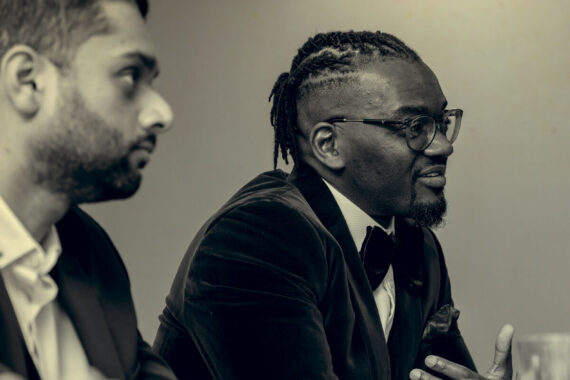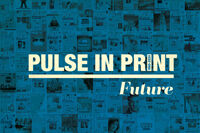
Pulse held a roundtable with three finalists in the GP Trainee of the Year award, plus the chair of the BMA GP Registrar Committee, who was speaking in a personal capacity. As part of our look into the future of general practice, editor Jaimie Kaffash discussed the future of general practice with them, the attraction of the career and where they see the profession going
What made you choose general practice training?
Dr Munyaradzi Nyamutora: I worked as a GP in Zimbabwe for seven years before I came into the UK. I liked the flexibility and independence that you get working as a GP. My first job in the UK was working in A&E and for a moment I thought I’d pursue that, but the shift pattern and limited time family was a big hindrance. So then I started thinking about GP. I like the work-life balance and I also want to do other things on the side. So I think GP will give me time to explore other interests that I have. I am not seeing that flexibility yet as a trainee! But after finishing the training, hopefully next year in August, I see that the flexibility will be there. I can decide how many days I want work, and then do other things on the side.
Dr Malinga Ratwatte: The flexibility certainly does appeal to me, and I think flexibility is increasingly valued by the younger generation. The ability to be a portfolio GP is incredibly attractive, because it allows those who don’t necessarily have one specific interest to actually enjoy a career with a lot of variety. And I think that can, given the NHS pressures at the moment, in terms of intensity, actually make work more sustainable for a lot of doctors. That variety just helps to break up the week a little bit. Certainly, there are lots of doctors going into GP training now who would have been in other specialties in the past.
Vishal Varsani: I got my CCT in August, and I now work three days a week as a partner. I was able to choose how much I work in the week, what days I work and if I want to do additional work, in terms of out of hours, I can. That was the reason why I went into general practice in the first place. The other thing was the work-life balance. In my time in hospitals, I saw a lot of juniors who are burnt out, even consultants as well. There’s always that strive to become a consultant and the work-life balance was shifting in such a way that you were spending more time at work than your interests outside of work. General practice allows a work-life balance and that’s why portfolio GPs and portfolio careers are booming at the moment.
Even if new partners were to join, we ask them what else they’re juggling with work and try to get a timetable that suits them. The flexibility isn’t just for salaried or locums, you can find it in partnership too.
Nahla Eltinay: I’m originally from Sudan, and graduated there. I moved into general practice for various reasons after doing five years of paediatrics. Six of my colleagues have the same cohort left to other specialties, such as public health, which I was thinking about. But it’s not going to bring that human interaction level of general practice, so I guess that was the attracting factor. Working hours was a bonus.
There is a lot of emphasis on portfolio careers for younger GPs – what does this mean?
MR: I think portfolio can mean a lot of different things. So, for example, it might just be that you want to be a clinician within general practice but you might be a salaried GP for four sessions a week, and then do two or three locum sessions. There are advantages with that around flexibility and control. But portfolio can also mean you do three days a week in general practice and you run a community specialty clinic on one of the days as well. It allows you to dive into other areas of clinical practice.
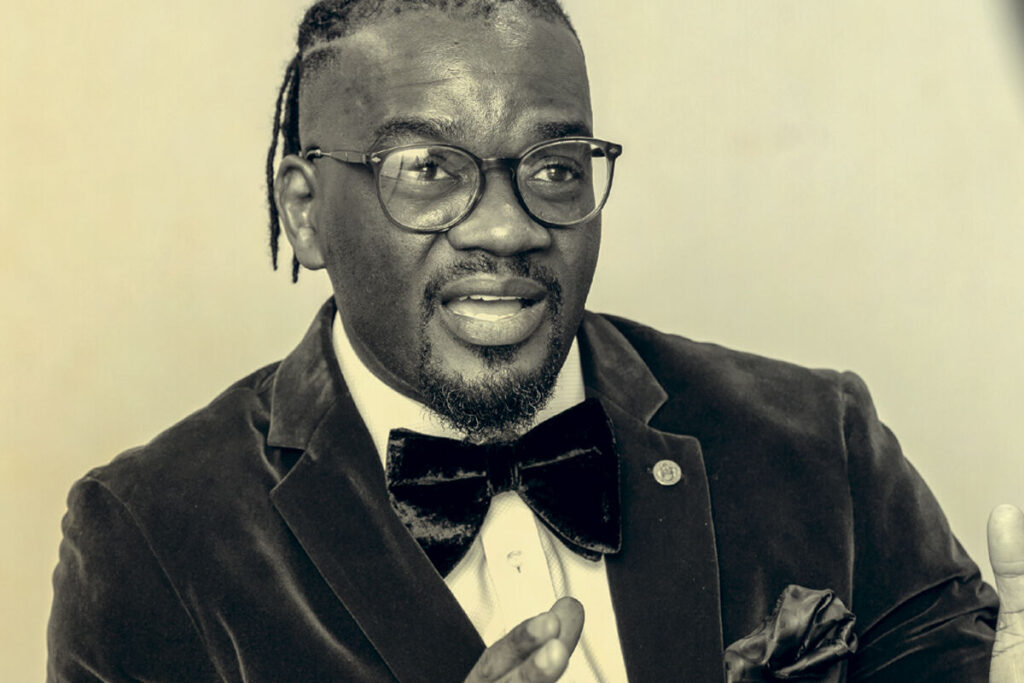
Dr Munyaradzi Nyamutora
It might be that you do advocacy work. For example, I work with the BMA. The ability to do have another role in an administration, management body or commissioning body – such as the ICB or local federation – gives you that opportunity to have different types of work as part of your career.
Is there still an appetite for partnerships?
MN: There’s a lot of talk about people being dissuaded from getting into partnership for a number of reasons. But I think I’ll be interested to be a partner probably for two days a week as a base for my regular income and maybe do a little bit of locum on the side. But I also see myself doing occupational health but with a stable income property of being a partner.
MR: I think there are a lot of challenges around partnership at the moment. The number of full-time equivalent partners across the UK is falling. That speaks volumes, because partnership was traditionally something that all GPs would aspire to; you ended up becoming settled within a community and developing those ties in your local community was a big attraction for general practice. I think it still is. The challenges around partnership are around the funding constraints – core funding has not kept up with inflation. And medicine itself is changing; patient care is becoming more complex. We need to see more investment into GP funding to make partnership attractive.
The ability to have a say in how services are delivered is also incredibly attractive to GP. I think there is a future in partnerships and we have to protect them. They deliver incredible value for the NHS as well.
Do you think more senior GPs aren’t as sympathetic to work-life balance as they perhaps should be?
VV: I speak to some of my colleagues, who are far more senior than me, who talk about times when they would work 8:30am to 6:30pm and would then take home a phone, which patients could call directly during the night and they would have to go and see patients. So the GP role was one where you were in the community and you were serving your patients 24/7.
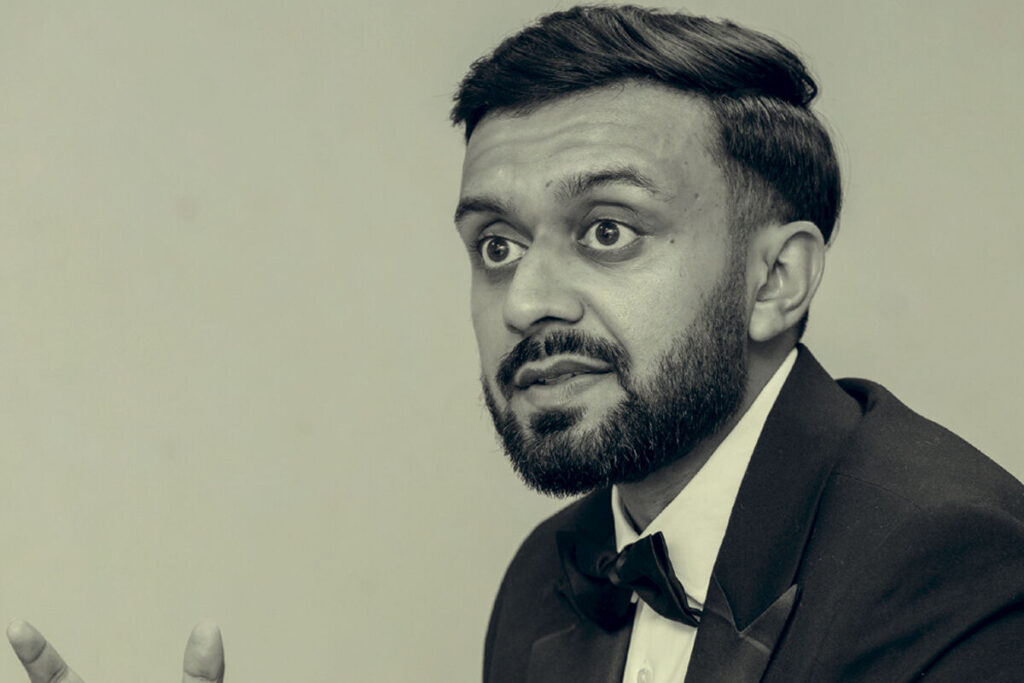
Dr Vishal Varsani
When this changed [in 2004], there was an increase in GP partners and GPs, but that has now fallen. There’s been a real tight squeeze in terms of the amount of work that you have to do between 8:30am and 6:30pm, your core hours – it’s really difficult to fit in all of that work. GP partners are doing additional hours at home, going through lab reports, or other documents – that’s not really accounted for by the Government. If the partnership model does fall, NHS trusts running a salaried GP service, all that additional work has to come from somewhere. You’re soon going to find that actually, the partnership model was offering a lot of bang for your buck than what you can see from just looking at appointment numbers.
Meet the trainees
Dr Munyaradzi Nyamutora, GP trainee in Blackburn. Previously a GP in Zimbabwe.
Dr Malinga Ratwatte, GP registrar in London, chair of BMA GP Registrars Committee, speaking in personal capacity.
Dr Vishal Varsani, newly qualified GP partner in Hertfordshire.
Dr Nahla Eltinay, GP registrar in Buckinghamshire. Originally from Sudan, but spent five years doing paediatrics in East of England and Oxford deaneries before moving to general practice.
MN: I think [older GPs appreciate work-life balance needs to change], because I also see it with the people that I’ve worked with. My first GP supervisor appreciated how things have evolved with out-of-hours being subcontracted. But it looks like that generation of GPs had developed a culture of working from home, out of hours. I think when it comes to the young generation, we’re getting into general practice because of work-life balance and flexibility
You will be the first generation to be trained after Covid. Do you think that has had an effect at all?
MR: Covid has certainly accelerated our move towards looking at different ways of working in consulting with patients. Because we learned how to do remote consulting, we’re now able to utilise that more effectively in the post-Covid era to actually be able to deliver efficiencies in terms of how we provide patient care. Certainly, we know there are many patients who would prefer a telephone consultation, because it fits in with their own working life and family commitments that they might have the flip side of that is that certain cohorts prefer face-to-face consultations.
I think younger generations of doctors are acutely aware about how mental health, wellbeing and sustainability impact one’s career. There are parts of the social contract between doctors and patients that have changed as well and the way that GPs are portrayed in the mainstream tabloid media play into that. To some extent, there is a feeling that doctors are more able to look after themselves.
Covid has accelerated our understanding of remote working, how that works and how we can do that safely. There certainly are patient groups that still benefit the most from face-to-face appointments: elderly populations, for example, or those who are not as technologically capable. But certainly there are cohorts of patients who prefer telephone appointments and that allows us to deliver more appointments and more health care for the overall population.
Babylon, which offered GPs the chance to do remote consultations from home when they liked, was popular among younger GPs. Despite their venture failing, do you think we’re going to see some more of these models?
MR: I think more than work-life balance, I think it’s about sustainability. Younger GPs see salaried NHS work as quite exhausting, because of the sheer number of patient contacts and the amount of clinical risk they are managing in a short space of time. So I think a lot of the reason why GPs look at other ways of working is actually just to manage workload. If I take private work, for example, I understand that there are some private providers where perhaps the remuneration isn’t even as high as NHS work sometimes is. But the way that they structure appointments is more sustainable, and the number of contacts is slightly less. That’s what becomes attractive.
The ability to work more flexibly is important, but I don’t think it’s the only factor that GPs will consider when they decide how to construct their careers and in the future. Because one of the benefits of face-to-face working is that you develop relationships with your patients, and that’s a massive pull factor. That’s more difficult to do remotely. In an ideal world, GPs would actually enjoy a certain percentage of their work as face to face and in a general practice setting. But it needs to be in a sustainable way.
Are you concerned about the future of continuity of care?
VV: Studies show that with continuity, life expectancy is actually greater. With portfolio work and the increase in locum GPs, yes, you’re losing some of that continuity. If you’re having increased staff turnover, whether that be due to burnout of if things aren’t sustainable in terms of working pattern, we’re losing that continuity. It’s important for GPs to be looking after themselves so that they can continue working in a steady environment in a single practice or community and they can provide that continuity.
MN: I know some practices that are purely run by locum GPs so there’s a high chance that every time a patient goes, they see a different doctor, and they complain that they have to start all over again… you can have so many consultations with no face-to-face interaction. And so that relationship is lost as well. In some cases, I think the quality of care is compromised, because you’re limited in terms of how you can examine the patient. I think slowly, continuity of care has been eroded because of different reasons.
Do you think the doctor-patient relationship is being eroded?
NE: There clearly has been problems with the patient-doctor relationship, partly due to the media. But these problems were there pre-Covid, and COVID has just brought them all to the surface. One of the factors is retaining staff.
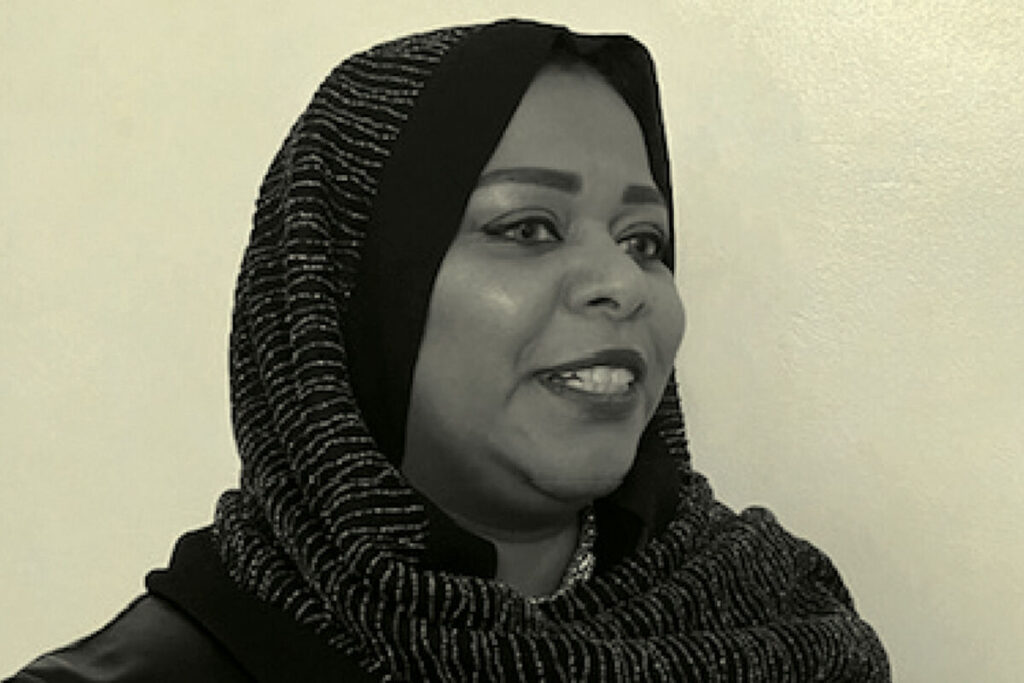
Dr Nahla Eltinay
I’ll just give an example of a patient I had, just last week. I had a long period of illness and that patient, for whatever reason, struggled to connect with many of the other doctors in the surgery and she had a serious issue that was missed. So yeah, you build your relationship through a period of years.
VV: I’ve spent more than 24 months at surgery and I’m only just starting to see the relationships that you can build. We have a model where access is done online, through a series of different questions including who would you like to see and how would you like to be contacted. When I started off, I would see senior partners named as the doctor that they want to see. It’s quite nice that I can now see my name popping up – that’s what continuity brings. It means I’m able to serve patients, I get to see them regularly. And it’s nice to see them grow in their journey through the NHS. It’s a struggle at the moment. You see patients and you refer them and they are not being seen. But you’re on that journey with them.
How does seeing senior GPs suffering from burnout affect you?
MR: Burnout is something that is on everybody’s minds as they approach the end of their training period as they’re going to be closer to what might be a 10-minute appointment and the intensity of that workload becomes apparent. GP burnout is the reason why working patterns such as portfolio careers are explored, why many registrars take a significant break or pursue alternative career pathways or actually go to other countries after they finish their training. There was recently an Institute for Government report that showed that the highest attrition from the general practice workforce was below the age of 30.
NE: Around 50% of GP trainees now are international medical graduates. Historically, there was less attrition from the workforce because a number of GP registrars had family ties to the UK. But as the number of IMGs increases as a proportion of GP registrars, those individuals don’t always necessarily have the same family ties in the UK. And because they’ve migrated to the UK, they are more likely to be able to migrate to other countries as well. So when you compare working conditions in countries like Australia, Canada and other countries have similar socioeconomic status, which might be English speaking, it’s more favourable there. You might find that it’s more difficult to retain the pipeline of GP registrars that we’re producing because of that. Retention is the key that needs to be addressed.
How do we improve retention, other than funding, which this Government is unlikely to provide?
MN: We had a meeting in our trust where we were asked what kind of things can be done to keep people in the area they’ve been trained. About 80% or 90% were international medical graduates, so issues in terms of getting residency was a big one. Somebody said they have to pay in excess of £12,000 to apply for residency. One of my colleagues who has just finished GP training has applied for a job in Australia and has been granted permanent residency there. Obviously, we also faced challenges in terms of applying for visas. If that process can be friendly, it will help in a big way in terms of retaining people.
MR: At the moment, immigration is certainly a hot topic. I think what is equally important to voters is a strong healthcare system. It is widely recognised that a significant number of NHS staff are from international backgrounds and the public understand that we need to attract those professionals into the UK. Recent legislation exempts healthcare workers so I think the government recognises this as well.
What are the factors behind such a high proportion of GP trainees being IMGs?
MR: Many IMGs come with a significant amount of previous experience. Some of that is in general practice and some in other specialties. Many may be more senior, may have families. There are a number of sacrifices that have to be made while training in the form of reduced salary for a prolonged period of time, geographical rotation and needing to uproot one’s household. So GP training is often attractive because it’s three years compared with six, seven, eight years. But also the rotations are hyper localised when compared with other specialty training programmes.
MN: I don’t think the training has to be longer than three years. Even a two-year programme, just GP based, will be fine.
Do you think AI will become an embedded part of general practice?
NE: It’s already happening, it’s already a big part of our daily work. I think we just need to be cautious because we are handling sensitive information. But at the same time, it will help with a lot of issues to do with continuity.
VV: AI may help GPs as an aid in providing primary care services. But I think the doctor-patient relationship is sacrosanct. I don’t think anything can replace that. I don’t think being diagnosed or being assessed by any sort of AI can replace that sixth sense that you have as a doctor – there is something in your gut that will tell you something about a patient that you cannot put a finger on, you cannot explain. And that’s what most people run on, especially in general practice, where you’ve got 10 minutes to assess a patient. You’re relying a lot on nonverbal communication, or what the patient looks like and your sort of gut instinct, and I don’t think AI will be able to replace that.
MR: I think that AI is absolutely revolutionary and it will not just change medicine, but it will change lots of other sectors and the whole world. The speed at which it is advancing is incredible. I think the challenges when it comes to medicine, and particularly general practice, is what a patient values. They value the human connection, having somebody that they can confide in and talk to about their health problems.
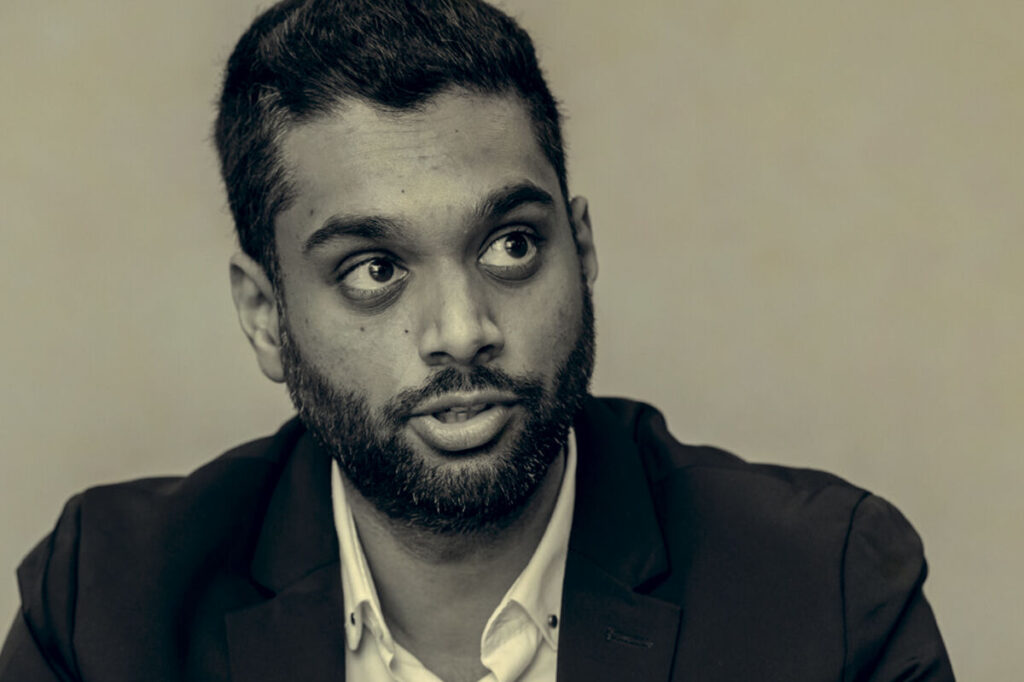
Dr Malinga Ratwatte
AI will always be superior to doctors when it comes to processing data, and making decisions based on the inputs that are provided. But I don’t ever think that patient typing their symptoms into a computer and having to wear sensors is ever going to replace be able to replace the doctor-patient relationship.
What do you view as the positives of general practice? What is exciting you in your future career?
VV: There’s constant change within general practice, which is actually something that’s really exciting. For younger GPs, the way that we’re working now is definitely not going to be the way that we’re working in 10, 20, 30 years. Trying to change with the times, the way that you’re working in terms of working from home, different consultation models: it’s all an exciting element of general practice, no one day is going to be the same. That’s the thing that’s keeping me going.
MR: For me, it’s quite personal. Both of my grandfathers were GPs, they moved to this country in the late 1970s, from Sri Lanka. And that opportunity changed the trajectory of their lives. My grandads were respected members of their communities that go down to the local Tesco, and people would say, hi. They made a real difference to people’s lives. That is the beauty of general practice. I would like to work towards restoring that beauty, restoring pride in being a GP and knowing that you’re making a significant difference to patients’ lives, that you have the continuity, you have that cradle-to-grave relationship. And I hope that’s something we can retain in general practice.
MN: For me, I think I just hope that there’s going to be some positive changes in terms of structuring the way GPs work. I’ve been saying to my wife, we have invested so much in this country, we want to stay and so I just hope that there will be changes. I guess I’m just too optimistic. But I do just want to be able to work, spend time with my family and hopefully do other things on the side and just be fulfilled as a GP.
NE: Despite all the issues we’ve just discussed, I am positive. I feel that people are starting to recognise more and more the importance of general practice and what it’s provided to the communities over the years. Five years ago, no one would have heard about neurodiversity, adapting the surgeries for dementia patients, so things are moving – and we would like this positive move to continue.

MR: There are difficult narratives in the tabloid media, but actually my lived experience is that the vast majority of patients are still truly grateful to be able to have a relationship with their GP, and actually are so grateful when a positive differences come into their life. So actually, there’s still a lot of hope for us. But I think what we need is key stakeholders to recognise the importance of general practice going forward. And actually, that it’s a false economy to divert funds away from general practice in the long run, it’s going to cost more. So I hope that we can maybe bring that into the spotlight and make people more aware of that.
Pulse October survey
Take our July 2025 survey to potentially win £1.000 worth of tokens



